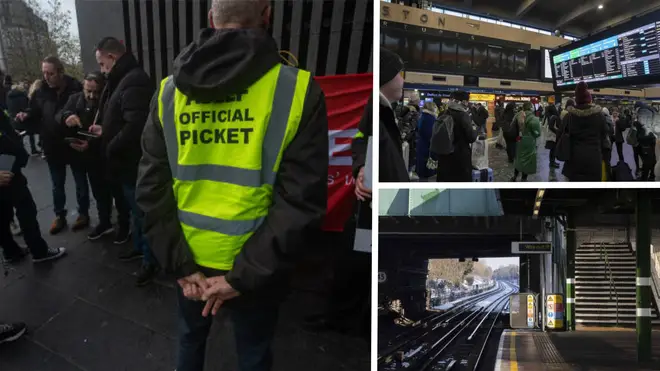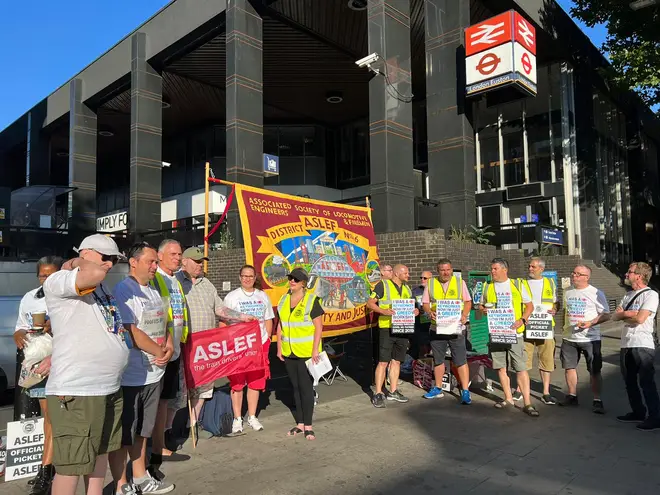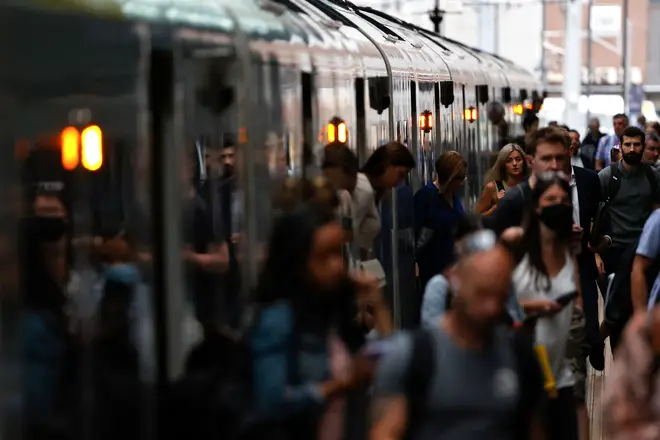
Dean Dunham 9pm - 10pm
20 December 2022, 11:46 | Updated: 20 December 2022, 12:22

Train drivers at the ASLEF union have voted to walk out on one of the few days from mid-December to mid-January that were previously unaffected by strikes.
Members of the union, which says it represents 96% of all train drivers in England, Scotland and Wales, will walk out from their jobs at 15 railway operators on January 5.
The strike will cause yet more misery for commuters, who were already facing disrupted services because of strikes by the RMT union on 11 days over the festive period.
ASLEF said their strike was over a long-running pay dispute - and warned that the January 5 strike could just be the first in a series of walkouts lasting for the next six months. The union's members previously walked out on November 26.
Train drivers' average salaries are just under £50,000, according to recruitment firm Reed - well above the wages of many members of RMT, which does not represent drivers, and considerably higher than the average pay in the UK.

Mick Whelan, the union's general secretary, said: "We don’t want to go on strike but the companies have pushed us into this place.
"They have not offered our members at these companies a penny – and these are people who have not had an increase since April 2019.
"That means they expect train drivers at these companies to take a real-terms pay cut – to work just as hard for considerably less".

Mr Whelan added: "The train companies say their hands have been tied by the government. While the government – which does not employ us – says it’s up to the companies to negotiate with us. We are always happy to negotiate – we never refuse to sit down at the table and talk – but these companies have offered us nothing. And that is unacceptable."
ASLEF said 85% of its members who voted chose to strike when asked.
Mr Whelan said: "The resolve of our members is rock steady... It shows just how angry – and determined – we are.We now have a new mandate for industrial action for the next six months. The way to stop this is for the companies to make a serious and sensible offer and for the government not to put a spoke in the wheels.

This caller brands Mick Lynch 'sanctimonious' after train strikes
"We don’t want to inconvenience passengers – our friends and families use the railway, too, and we believe in investing in rail for the future of our country – and drivers don’t want to lose a day’s pay.
"That’s why strikes are always a last resort. But the intransigent attitude of the train companies – with the government acting, with malice, in the shadows – has forced our hand.
"Because these drivers – who were, don’t forget, the people who moved key workers and goods around the country during the pandemic – have not had a pay rise for nearly four years."
It comes amid strikes across much of the UK's key industries, with nurses, ambulance workers and postal staff all walking out in Decemebr.
But TSSA members at Network Rail voted overwhelmingly to accept an improved pay offer from their employers earlier in December.

Rail companies whose ASLEF drivers are going on strike:
Full list of train strike dates